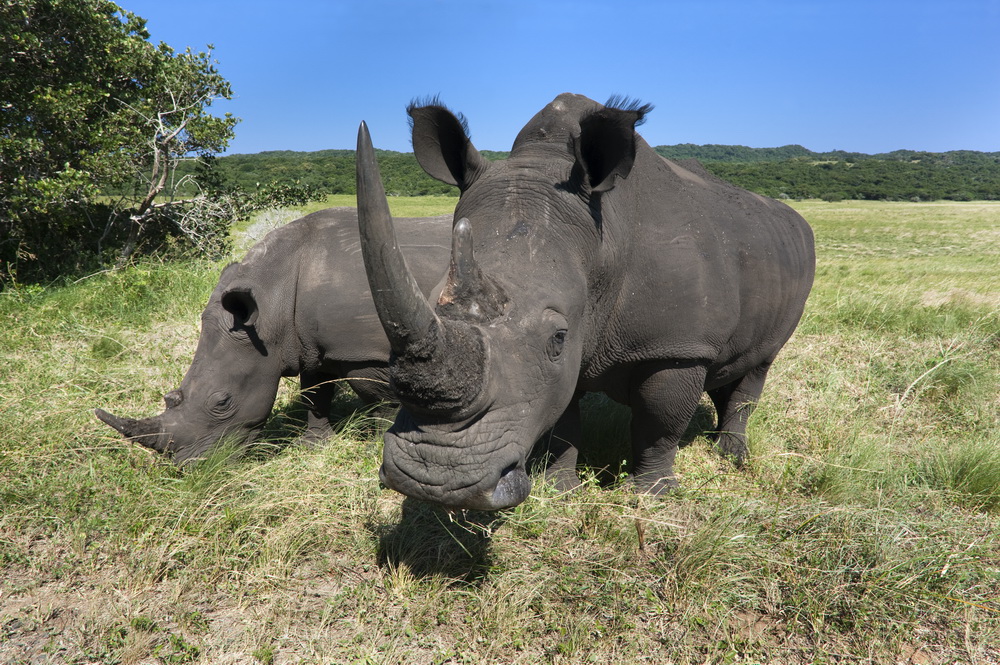In what could be the biggest rhino horn-trafficking case ever recorded in South Africa, two men have been arrested in possession of 167 rhino horns.
Since the arrest on 13 April 2019, a wealth of theories have been proposed in social media. It is important that we establish the facts and that the police in South Africa are able to gather all the information they need.
What we know so far:
- Two men in possession of 167 rhino horns were arrested in the Hartbeespoort Dam area in North West Province, South Africa, on Saturday 13 April, after an intelligence-led police operation
- The initial police report stated they had a tip-off that a vehicle registered in a coastal province was carrying large amounts of rhino horn that was to be sold on the black market, destined for South East Asia
- The names of the two men arrested became public a couple of days later: Petrus Steyn and Clive John Melville, both residents of Port Elizabeth in Eastern Cape province. Both men were released on bail on 26 April
- They had a permit to transport the horns from one location in Gauteng to another location in Gauteng. This permit did not allow the transport of the horns to or through any other province, and therefore the permit was violated when they went into the North West Province
- A police spokesperson has stated that the men are being charged with illegal possession of rhino horns and contravention of South Africa’s National Environmental Management Biodiversity Act
- John Hume, the owner of the largest rhino herd in the world, has confirmed he legally sold 181 rhino horns to a Port Elizabeth buyer, but that no funds had yet been transferred for this sale
- Hume’s attorney also confirmed that the two individuals were acting as his agents in transporting the horns to their buyer, who would pay Hume once the horns were sold
- Photographs used to illustrate the various newspaper articles have been stock images, rather than of the actual horns seized
- The next court appearance is due on 12 July
John Hume is a private rhino owner who has more than 1,600 white rhinos. He has had numerous court battles with South Africa’s Department for Environmental Affairs regarding the legalisation of domestic trade within South Africa. We have seen reports that one of the accused, John Melville, is the nephew of John Hume.
Rhino owners may choose to dehorn their rhinos for several, not mutually exclusive, reasons, primarily:
- As a security measure, to reduce the incentive to poachers to target the animals on that property
- To prevent an overly aggressive rhino from injuring other animals
- Or in order to harvest and sell the horn, whether now or in the future. At present, domestic trade within South Africa is legal, but all international trade is banned by CITES
There are very strict regulations regarding the dehorning, storing, transporting and documenting of rhinos in South Africa. Rhino owners or managers must obtain permission to do carry out dehorning operations, and all horns must then be weighed, measured, photographed, marked and microchipped, and a sample sent to RhODIS, the Rhino DNA Indexing System run by the Veterinary Genetics Laboratory of the University of Pretoria, for DNA analysis and entry on the eRhODIS database. This analysis enables investigators to match, for example, seized horns back to rhino carcasses, regardless of the lapse in time since a poaching incident. The discrepancy between the number of horns seized and the number that Hume sold, has not been explained.
Typically, a rhino owner or manager will have a small safe or strong-room on site, but will want to move horns off of their property as soon as possible, to reduce the risk of a targeted attack. A poorly protected strong-room presents an easy target for criminal syndicates (as in 2014 when 114 horns were stolen from Mpumalanga Tourism and Parks Agency offices in Mbombela). Instead, horns tend to be sent to Johannesburg or Pretoria, where there are facilities with extremely high levels of security, often also used for other high-value items, such as gold and diamonds.
South African private, state and provincial rhino owners and managers in favour of legalising the trade in rhino horn, such as those behind Rhino Horn Trade Africa, will no doubt be furious about this incident. Anything that throws doubt on the ability to police the legal domestic trade in rhino horn surely jeopardises the chance of continued domestic trade in rhino horn within the country, as well as efforts to legalise the international trade in rhino horn. eSwatini, which submitted an international trade proposal to CITES for consideration at CoP18 in May 2019, must be holding its breath to see what the fallout from this case is.
We’ll keep this page updated with all the latest announcements.









